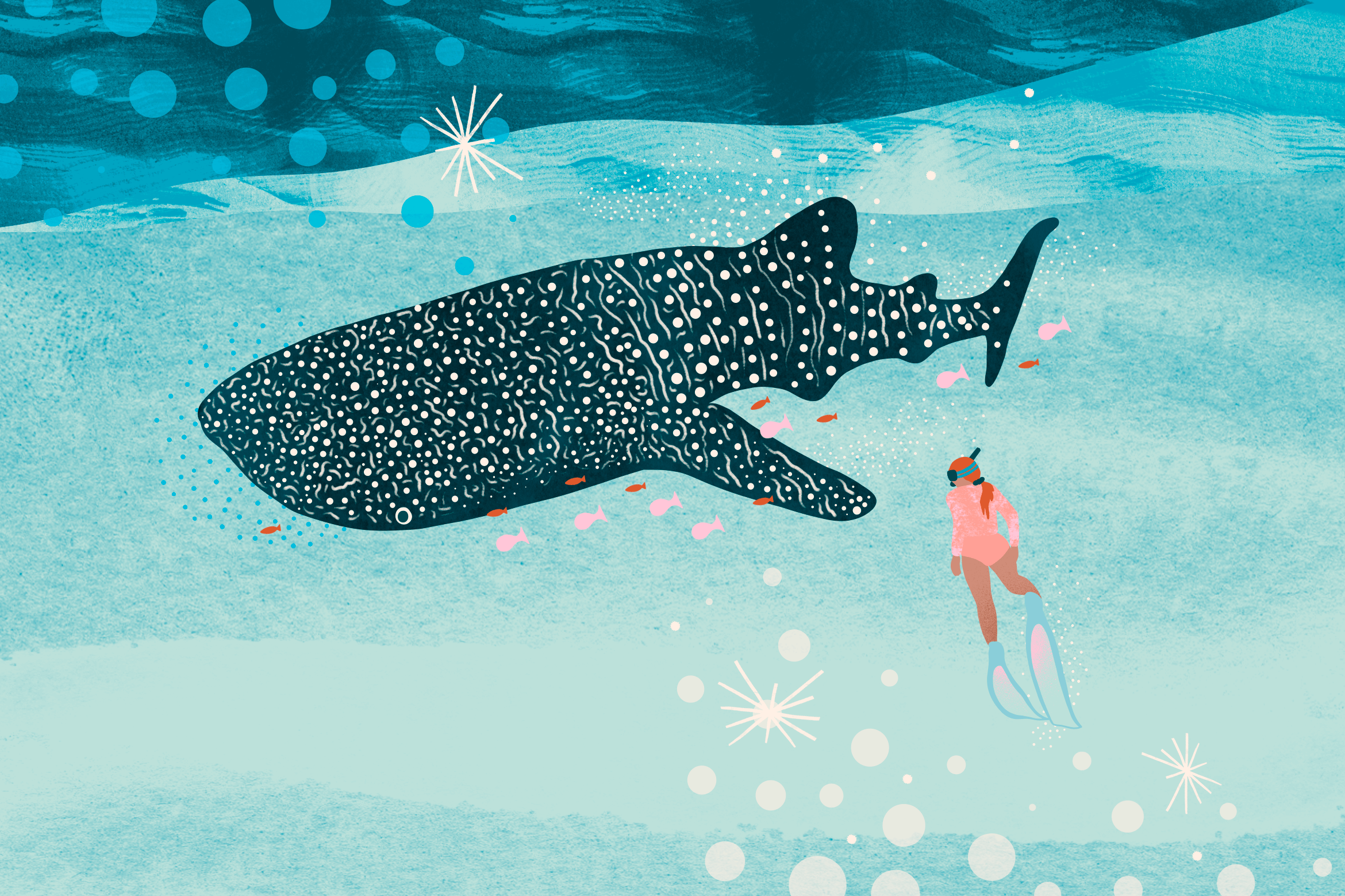I think we all agree that everybody needs to learn to swim.
At In The Deep though, HOW we learn to swim is as important as learning in the first place.
It's not about staying on top of the water, rushing to the nearest wall or person to catch our breath and avoid sinking. It's also not about focusing solely on the safety and strokes aspect that reinforces the – outdated idea – that freestyle = swimming. Dog paddling and adding overarms, like so many outdated learn to swim programs, for us that's a big no!
Here in Sydney, a city surrounded by and obsessed with water, we exist to help kids form a far deeper connection to the water. One of joy, creativity, discovery and ease that can be found – beneath the surface.
It's creating a positive relationship with swimming by slowing down a complex skill that can be overwhelming to kids. This opens us up to a meaningful relationship with the water.
What do we mean by a deeper connection?
It means more than being comfortable on top of the water's surface. It's about being relaxed in the water, free from anxiety. It's knowing how to float whenever you want or need to. A deeper connection is moving with the water so that it's not a fight. It's not for the sake of competition or winning races, but can you swim for 25 metres with grace and ease?
We all know that swimming is important to learn. But there's another dimension of being in the water we believe today's kids could especially benefit from.
1. It leads to the experience of discovery.
The vestibular system is essentially, who we are in the space around us. It’s how we interact with everything and everyone in our environment. Going under the water gives us another dimension of who we are.
As we're growing, we can better understand our body by being in the water – how our arms and legs, our head moves about. When we learn to swim, the unique sensory experience water offers, allows kids to explore this in a way land cannot replicate.
And we think it goes deeper.
We’re all so unique. The water is the perfect playground to move around in such a free way. Being under the surface, we're hidden from the world. It becomes a safe space to explore and be silly, without fear of judgement. Kids can be themselves in the water. We love that water can gift this to all kids, no matter their skills and abilities. Water is the great equaliser. It’s a really special place!
2. It encourages creativity.
The water can be an incredibly creative environment. It taps into the innate creativity of kids, offering them a space where they can let their imaginations run wild. In the water, there's no instruments, tech or toys required! It's them, their bodies, and the water. Encouraging play in our program, we love what swimming coach Laurie Lawrence says about this – "the water is the toy".
3. There's a pure sense of joy under there.
When we're suspended in the water, we feel a sense of freedom that soothes and brings a smile. The water becomes a nurturing embrace, supporting us as we play, float, chat, swim. We're certain we've not seen a single child learn how to do a duck dive into the pool without a huge grin on their face.
4. Learning to swim is learning wonder.
We’ve got to learn to respect and move with the water. When we’re taught this we're instinctually able to experience that beautiful sense of wonder in the water. From wild to calm, deep blue, grey days to calmer, sparkling sapphire days. If you understand the water, you’re more likely able to surrender to it and let your mind wander. Cue the wonder!
We help create a sense of this in those early levels of our program. When we’re teaching kids how to float, and we first let go, they naturally assume they’ll sink. In that very first moment of when they realise they’re not sinking, but being held by the water – when we see their faces, that’s actual wonder.
"WHAT I’m FLOATING! The water actually holds me!"
They’re amazed.
There’s so many lessons in life in that moment right there, isn’t there? Are they learning to let go? Building resilience? Learning to self-trust?
This is the wonder of creating a deeper connection with the water, when the how we learn to swim, is as important as why we learn in the first place.
Why should you go with a learn to swim program that supports this holistic approach?
It's simple. Swimming is not just a skill; it's an opportunity to connect kids to a space where, over a lifetime they’ll feel safe, supported, grounded.
They'll have a tool that generously refills their cup with joy. The water will be a respite from the digital world that dominates their daily lives.
Swimming offers movement, fun, creativity, expression, and wonder. We think these qualities are increasingly vital in a world yearning for balance and connection.
Sea you in the water!
x Sasha



No comments.